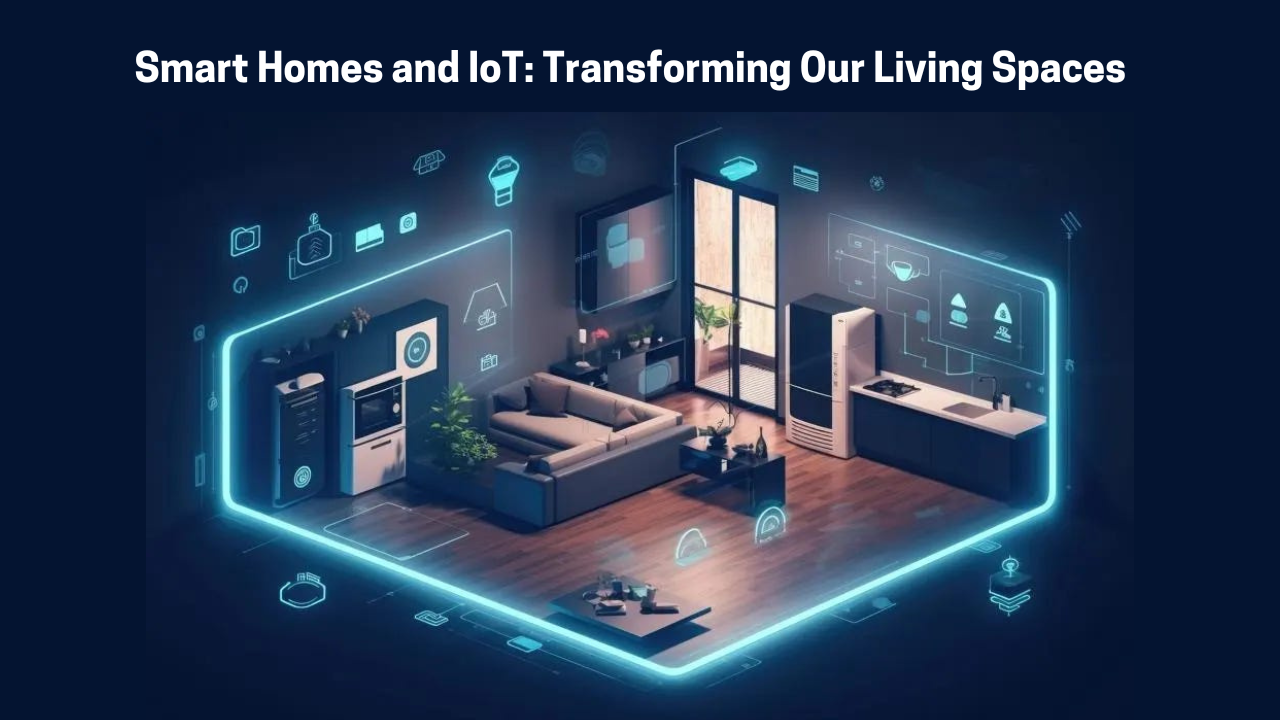Smart Homes and IoT: Transforming Our Living Spaces

Introduction to Smart Homes and IoT
The world of technology has evolved, and with it, our homes have transformed into smarter, more efficient spaces. Thanks to the Internet of Things (IoT), a network of interconnected devices can now automate and enhance our daily lives. From smart thermostats that learn your schedule to home security systems that can be monitored remotely, IoT has made living spaces more comfortable, efficient, and secure.
What is IoT in Smart Homes?
IoT refers to the concept of connecting everyday objects to the internet, enabling them to send and receive data. In a smart home, devices like refrigerators, thermostats, lights, and security cameras are interconnected, creating a seamless and efficient living environment. These devices communicate with each other, allowing homeowners to control their home remotely through smartphones or voice assistants like Amazon Alexa or Google Assistant.
Benefits of Smart Homes
1. Increased Energy Efficiency
One of the most significant advantages of smart homes is energy efficiency. Smart thermostats can adjust temperatures based on occupancy and time of day, reducing energy consumption. Smart lighting systems can be scheduled or controlled remotely, ensuring lights are turned off when not needed.
2. Enhanced Security
Smart home security systems provide real-time monitoring through cameras and sensors. Homeowners can lock doors, view live video feeds, and receive alerts if there’s unusual activity, all from their mobile devices. Integration with smart locks and alarms adds an extra layer of security.
3. Convenience and Automation
Imagine entering your home and having the lights turn on automatically, your favorite music start playing, and your thermostat adjusting to your preferred temperature—all without lifting a finger. Automation allows homeowners to set routines that enhance daily life by streamlining tasks and providing greater control over their living environment.
4. Improved Health and Well-being
Smart home devices can also contribute to better health and well-being. For instance, air quality monitors can track the quality of air in your home, while smart beds and wellness devices can track your sleep patterns to improve overall health.
Popular Smart Home Devices
There is an ever-growing list of smart devices that are becoming increasingly popular in homes:
- Smart Thermostats (e.g., Nest, Ecobee)
- Smart Security Cameras (e.g., Ring, Arlo)
- Smart Speakers (e.g., Amazon Echo, Google Nest)
- Smart Lighting (e.g., Philips Hue, LIFX)
- Smart Plugs and Switches (e.g., TP-Link, Belkin)
Challenges and Considerations
Despite the numerous benefits, implementing smart home technology comes with its own set of challenges. Cost is a significant factor, as quality smart devices can be expensive. Additionally, privacy concerns arise with the amount of data these devices collect, which requires homeowners to be cautious about the security of their networks and devices.
The Future of Smart Homes and IoT
The future of smart homes looks bright. As technology advances, we can expect even more intuitive and interconnected devices that offer greater convenience, security, and energy savings. The continued integration of artificial intelligence (AI) and machine learning will enable these devices to anticipate user preferences and behaviors, creating a truly personalized living experience.
Conclusion
Smart homes and IoT are revolutionizing the way we live, offering a level of convenience, security, and efficiency that was once the stuff of science fiction. As technology continues to advance, the potential for smart homes to improve the quality of life will only grow. While there are still some challenges to overcome, the benefits of a connected home make it a worthwhile investment for those looking to embrace the future of living.
